
The Leica SL3 is the latest in the firm’s line of pro-spec full-frame mirrorless models, which started with the original 24MP SL back in 2015. This was a camera built unashamedly for professionals, with an extremely robust body supported by superb optics. Four years later, the SL2 appeared with a 47MP sensor and more streamlined operation. Now its successor maintains the same philosophy, but gains many of the updates that we saw last year in the Q3 full-frame compact.
Key updates include a 60MP sensor, 8K video recording, and a tilting rear screen. Autofocus is improved by the addition of both subject recognition and on-sensor phase detection. This brings the SL3 much closer into line with other top-end full-frame models, in terms of headline features.
However, at £5,920 body-only, the Leica SL3 is much more expensive than its mainstream competitors. Most obviously, the Sony Alpha A7R V is also built around a 60MP sensor and offers a very similar feature set. Other alternatives include the Canon EOS R5 and Nikon Z 8; all three cameras can be bought for two-thirds of the price. So why might you consider paying such a premium for the Leica?
Features
Let’s take a tour through the Leica SL3’s key features. Like the Q3, it’s built around a 60MP full-frame sensor which includes phase detection for autofocus – the first time we’ve seen this on a Leica mirrorless camera. It provides a standard sensitivity range covering ISO 100-100,000, with ISO 50 also available at the expense of highlight range. You don’t have to shoot 60MP files all the time, though, as you can also record both JPEGs and DNG raw files at either 36MP or 18MP.
Diese Geschichte stammt aus der April 30, 2024-Ausgabe von Amateur Photographer.
Starten Sie Ihre 7-tägige kostenlose Testversion von Magzter GOLD, um auf Tausende kuratierte Premium-Storys sowie über 8.000 Zeitschriften und Zeitungen zuzugreifen.
Bereits Abonnent ? Anmelden
Diese Geschichte stammt aus der April 30, 2024-Ausgabe von Amateur Photographer.
Starten Sie Ihre 7-tägige kostenlose Testversion von Magzter GOLD, um auf Tausende kuratierte Premium-Storys sowie über 8.000 Zeitschriften und Zeitungen zuzugreifen.
Bereits Abonnent? Anmelden

Calling The Shots: A Queer History of Photography
Offering an unprecedented view of photographic history through a queer lens, this is a wonderful and powerful book, says
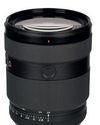
Large-aperture standard zoom, too
SONY has also revealed a new premium standard zoom, the FE 28-70mm F2 GM.
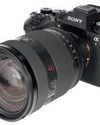
Super-fast, high-res Sony Alpha Ai II
SONY has announced its new professional full-frame flagship camera, the Alpha A1 II.
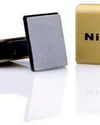
39 awesome accessories
Our round-up of the best accessories we've used and reviewed this year, along with some old favourites. There's something here for every budget, starting from just £7, including tripods, bags, filters and much more

Such a thing as society
This autumn sees the launch of a major new book and exhibition devoted to examining the multiplicities of photography during 1980s Britain. Peter Dench finds out more

Join Club
The sociable Canvey Island Photographic Club is keen to grow its in-person meet ups

Capturing flight
Winners and finalists of Bird Photographer of the Year share their tips for success with Hollie Latham Hucker
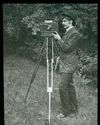
140 years of change
AP has become the world’s oldest surviving consumer photo magazine because we have moved with the times, says Nigel Atherton

Preserving history in platinum
A deep dive into the meticulous art of platinum printing, and the collaboration between the Royal Geographical Society and Salto Ulbeek. Mike Crawford explores how they brought historical photographs to life with enduring beauty and precision
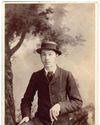
Life in the past lane
What was life like for an amateur photographer in 1884? John Wade takes a trip back in time